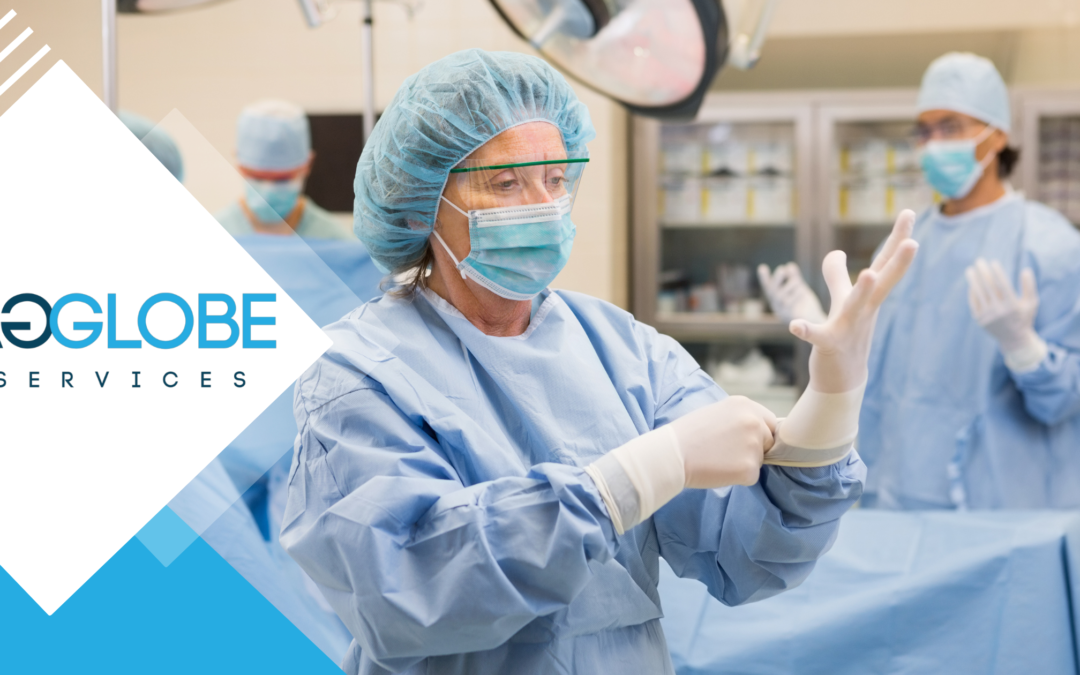
by hammad | Dec 6, 2023 | Blog, Client, Healthcare, Job Seekers
When it comes to pure passion and dedication to work, our Healthcare Workers are always at the top of the list. These amazing people are always on the front lines and expected to prioritize their patient’s safety first. They always go the extra mile by working longer hours and always need to be updated with the latest medical advancements. However, what many people don’t realize is that these people are just human beings as well who have lives outside of their work, filled with hobbies, passions, and interests that are just as important to them as their jobs.
In this blog, we will explore the unique hobbies and passions of Healthcare Professionals, and why it is essential to acknowledge and support these interests. We will also tackle the benefits of pursuing hobbies outside of work for Healthcare Professionals and present strategies for employers and managers to promote a culture of work-life balance in Healthcare.
One of the most significant benefits of understanding Healthcare Professionals beyond their job title is that it can lead to better communication and teamwork. When coworkers know each other’s interests and hobbies, they can find common ground and develop synergy and stronger relationships. This definitely can lead to improved patient care, as Healthcare Professionals who work well together can collaborate more effectively and provide more comprehensive care.
Another benefit of pursuing hobbies outside of work for Healthcare Professionals is the psychological benefits it can provide to them as these heroes deal with high levels of stress, pressure, and emotional demands daily. Pursuing hobbies and interests outside of work can help them manage these stresses, reduce burnout, and improve their mental health.
One of the most fascinating aspects of Healthcare Professionals’ hobbies and passions is the wide range of interests they have. From musicians and artists to athletes and adventurers, Healthcare Professionals are a diverse group of people with unique interests and talents. By exploring these interests, we can gain insights into the lives of Healthcare Workers, which can help us better understand and appreciate the important work they do.
Related: Music and Healing for Healthcare Workers
Employers and managers have a crucial role to play in promoting a culture of work-life balance in Healthcare. By offering flexible scheduling, work-from-home options, and encouraging employees to pursue their hobbies and passions, employers can help Healthcare Workers achieve a better work-life balance. They can also provide team-building activities that will promote teamwork and at the same time, provide enjoyment and camaraderie. This can lead to increased job satisfaction, improved patient care, and reduced turnover rates among Healthcare Professionals in your team.
In conclusion, Healthcare Professionals have lives beyond their work that are just as important to them as their jobs. By acknowledging and supporting their hobbies and passions, we can develop stronger relationships, improve patient care, and promote a culture of work-life balance in Healthcare. So, the next time you meet a Healthcare Professional, don’t be afraid to ask them about their hobbies and interests. You may be surprised by what you learn.
Are you still in search of a rewarding and fulfilling career as a Healthcare Professional? We have a lot of openings for you at AG Globe Services by clicking this link. Connect with us now!


by hammad | Nov 15, 2023 | Blog, Healthcare, Job Seekers
Every step starts with communication. To make an idea work, you must communicate with your teammate. An excellent outcome is a result of effective communication. In the Healthcare field, along with medical and technical proficiency, this is a must in order to provide the best quality of patient care. Through communication, we build trust in our patients so they are not worried and scared about their condition or the treatment process that will be going into. In this blog, we will tackle the power and importance of communication in the Healthcare field, how to overcome language barriers effectively, the uses of non-verbal communication with your team and patients and build great relationships through communication.
How to Overcome Language Barrier in the Healthcare Field
In every field and area, the language barrier is always a challenge due to our differences in nationality, and fluency in a certain language. In the Healthcare field, most of the medical terms, apparatus, diagnosis, and many more are in English. We need to relay this important information to our patients effectively to avoid confusion and reluctance on their end. We can use the help of interpreters on this matter as this will be the most effective and direct approach for this specific challenge. The term and meaning being conveyed is translated correctly. One good solution if you do not have your resident translator in your workplace is through the use of translation apps but expect that it is not always accurate. The language barrier is very crucial because one wrong information inaccurately relayed might result in distrust between you and your patient.
How to Effectively Communicate Verbally and Non-Verbally
As the saying goes, “… to be a good speaker, be a good listener.” In the aspect of Healthcare, this is always applicable. We should always listen to our colleagues, most especially our patients. Knowing their thoughts, feelings, and worries about their current situation is always important because that is the area that we will be working on to lessen their worries while explaining their condition and treatment procedure. The use of empathy is always effective every time we communicate with them because it will help them feel that they are not alone in this situation, and they can always rely on us and our expertise. For patients that have different ethnicities and cultures, we Healthcare Professionals should be culturally sensitive and not invalidate their views and opinions about modern Healthcare procedures, and technology.
Related: Unity in Diversity: The Vital Role of Cultural Competence in the Healthcare Environment
Empower Your Patients by Communicating with Them
As always, never expect good patient outcomes all the time; always be ready for bad news. Communicating this to your patients is probably one of the toughest challenges to do as a Healthcare Professional. Different kinds of emotions will definitely come after next so we must be careful and more sensitive on this part. Though we need to impart this important information, we should always empower them by effectively communicating because if we connect with them successfully, there is still hope and a high chance for good patient outcomes.
The key to a good and positive outcome in Healthcare starts and ends with effective communication. Conducting training and education for this soft skill is always important as it also helps your Healthcare Professionals to improve professionally.
Are you ready to start your Healthcare Career profession? Here at AG Globe Services, we have many openings for Healthcare Professionals around the US. Connect with us now!


by hammad | Oct 11, 2023 | Blog, Healthcare, Job Seekers
Healthcare is a necessity in all parts of a country, from urban to rural areas. No community should be left out of getting the best healthcare and they should always have access to modern tools, apparatus, and medicines. However, these limitations stated have been a challenge even before due to several factors such as distance from the city, limitation of resources, and remoteness. These challenges can turn into great opportunities because there is a huge room for teamwork and innovation, together with support from the local government. In this blog, we will tackle further the different opportunities for healthcare workers in rural areas and their potential for growth and innovation in these far communities.
Healthcare Challenges in Rural Areas
Whenever we hear the term ‘rural’, we always associate the word with being far, with limited access to technology and transportation, and isolated most of the time. When it comes to healthcare, these are also applicable. Some of the major factors that hinder progress in rural areas are poverty and lack of opportunities. This often results in poor health outcomes and quality of life. One of many ways to help gradually resolve this problem is by having mobile clinics that can be an opportunity to bring modern and improved healthcare to communities. People living in these rural areas can anticipate these mobile clinics and make the most of them once they visit the area. They will be able to monitor their health conditions thanks to regular checkups that were previously unavailable. These mobile clinics can also utilize the Internet in order to connect patients to medical experts directly. Also, by working with the local government and organizations, different healthcare programs can be launched, make improvements to the community health centers, and get access to modern healthcare technology.
Healthcare Workers in Rural Areas
Getting healthcare workers to work in rural areas is a very challenging task due to the lack of opportunities and career advancement. Also, for the existing rural area healthcare workers, one great challenge for them as well is their declining mental health due to isolation. How do we solve these challenges? In relation to the previous topic, we can promote career opportunities for our Healthcare Workers through the mobile clinics that roam different rural areas. There are Healthcare Professionals that love to get to different places, this can be a great opportunity for them. Also, some love doing healthcare works for people in great need due to their nature and passion. This makes everything not forced and natural; results are most likely positive because they get to enjoy what they are doing while at work. As for the Healthcare Workers in local healthcare clinics and their mental health, we can also create programs that will help lessen their burden and improve their mental health.
Related: It’s Time for A Change: Tips on How to Transition Career Into Healthcare
Working in the Healthcare field in a rural area has its own beauty and benefits. We can always turn the challenges into great opportunities that will not only merit us but most importantly, the communities that need them the most. Through proper communication and coordination with the right partners, we can make everything work smoothly. We can provide improved healthcare for people in need regularly. We can also create new career opportunities through the different healthcare programs.
Are you looking for a new and rewarding career in the healthcare industry? Here at AG Globe Services, we can help you find it. Check our openings now!


by hammad | Sep 20, 2023 | Blog, Client, Healthcare, Job Seekers
In the Healthcare Field, we always communicate and relay important information with our colleagues, visitors, and patients through talking. But when it comes to connecting, this is a different topic because emotions are always attached to it. Human beings always link on a deeper level through their minds and hearts. For Healthcare Professionals, the ability to empathize is very important aside from technical skills and general knowledge about your role. In order to build a positive relationship, especially with your patients, you must know where they are coming from. By creating a positive patient experience, most likely is that there is a higher chance of good patient outcomes. In this blog, we will tackle why empathy is vital in every Healthcare role, and how to encourage and maintain this significant skill in every Healthcare facility.
Relationship Between Empathy and Patient Outcomes
According to Merriam-Webster (n.d.), empathy is the ability to comprehend, acknowledge, and feel the emotions, ideas, and encounters of another person from either the past or present, without the need for explicit communication. It involves sensitivity towards others and the capacity to emotionally connect and relate to them on a deeper level. Not every person knows how to give empathy but during needed times, this skill is essential, especially to your patients. To show empathy to a person, we can build rapport with our patients by asking questions that will help them feel safe around us Healthcare Workers such as how they feel at the moment, how is their day, and many more. That way, we can encourage them to follow their treatment plans we were able to recognize their specific needs and concerns.
Related: Acquire and Improve Your Soft Skills To Elevate Your Healthcare Career
Empathy Training for Healthcare Workers
Through proper training and education, we can help our Healthcare Workers develop and/or improve this wonderful ability that they can use in their personal and professional lives. Here are some of the best practices to help our Healthcare Workers develop empathy:
- Attentive listening training- listening is one of the most powerful skills we should learn because we can interconnect deeper with the person we are talking with.
- Patient feedback- Gathering patient feedback is crucial in identifying areas for improvement in Healthcare Services. Without directly asking our clients, we will not clearly understand how our healthcare professionals can better empathize with patients. Their comments provide valuable insights that can be used to enhance the quality of care and improve the overall patient experience.
- Adapting treatment plans to the patient- by taking into account the patient’s individual needs and concerns, healthcare providers can customize treatment plans to their specific situation. This personalized approach can result in improved patient outcomes and a higher quality of care.
In the Healthcare Industry, having empathy as a skill is essential in every Healthcare Employee-patient interaction. As a Healthcare Professional, by showing and demonstrating empathy toward your patients, results are mostly positive in terms of patient experience and outcome because of the rapport you can build with your patient. Empathy is not hard to develop because there is simple education and training that can help you build it. Through this skill, we will be able to create a positive and compassionate atmosphere for our patients in our Healthcare facilities.
Looking to find your dream career as a Healthcare Professional? AG Globe Services can help you find that job for you. We have openings for our Healthcare Professionals in the U.S., click here. If you want to learn more about us, connect with us now!
Source: Merriam-Webster. (n.d.). Empathy. In the Merriam-Webster.com dictionary. Retrieved August 2, 2023, from https://www.merriam-webster.com/dictionary/empathy


by hammad | Aug 9, 2023 | Blog, Client, Healthcare, Job Seekers
Every hero has a sidekick. In a Healthcare facility, you may have spotted a person in scrubs working alongside the medical team during an intense operation – that person is their supporting hero. A Scrub Tech or commonly known as a Surgical Technologist is one that keeps an operation safe from any harm. They play a very important role in the operating room, ensuring that surgical procedures go as swiftly and effectively as possible. In this blog post, we will look at the job and responsibilities of a Scrub Tech, the requirements, the career path, and what a typical day in the life of a Scrub Tech looks like.
Who Are They? Recognizing the Essential Roles, Duties, and Skills of a Scrub Tech.
In the operating room, Scrub Techs work alongside surgeons and other medical experts, usually seen at the back beside the apparatus and medical instruments, and hand them over to the surgeon. They are the ones that keep the operating environment clean, sanitary, and well-organized before and after every surgery. They are in charge of putting up surgical instruments, equipment, and supplies as well as preparing the operating room for surgeries. These amazing professionals help the surgeon and other medical personnel during surgeries by delivering them the necessary instruments and supplies, as well as monitoring the patient’s vital signs and assisting with wound closure. Without them, operations will always take too long and possibly affect the outcome of the surgery due to delays, uncleanliness, etc.
Individuals must have numerous critical talents to succeed as scrub techs, including attention to detail, agility, good communication skills, and the ability to perform well under pressure or mental fortitude. Scrub Techs must be well-versed in all surgical processes and be able to anticipate the demands of the surgeon, from the instrument needed to the procedure that should be done next. They must also be able to properly communicate with the surgical team and maintain their cool, most especially in emergency situations.
Qualifications and Professional Path
To become a Scrub Tech, you need to complete an accredited surgical technology program and obtain certification. Opportunities for advancement in the field include specialization and pursuing additional education or training. As medical technology keeps on innovating, it’s very important to stay up-to-date with the latest surgical technology and techniques to maximize efficiency during surgical procedures. At the same time, you might consider joining a professional organization for continuing education and networking opportunities for your professional career.
Related: Career Spotlight: CT Technologist
Skills Needed, Trends, and Opportunities as a Scrub Tech
There are particular in-demand talents that are required in order to succeed as a scrub tech. The most basic skill needed would be the technological knowledge of surgical instruments and techniques. Soft skills are also vital for a Scrub Tech that includes the capacity to operate effectively under pressure, intense focus on the situation, dexterity, and attention to detail. While scrub technologists collaborate closely with other members of the surgical team, strong interpersonal and communication skills are also crucial because it avoids mistakes that can be critical to the survival of the patient.
Working as a scrub tech has its advantages and challenges. The potential for career progression, the chance to have a significant impact on patients’ lives, and a strong sense of teamwork are just a few advantages. The hours can be long and unpredictable, and the work is undoubtedly physically and mentally taxing due to the heavy atmosphere in most surgical procedures. At the same time, Scrub Technologists are always vulnerable and exposed to different harmful substances and instruments, and infectious illnesses. Personal hygiene and clean surroundings should be observed at all times.
Are you ready to start your career as a Scrub Tech? Connect with us at AG Globe Services and we will help you fulfill your dream.








